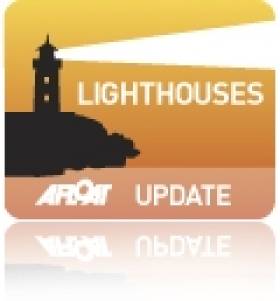Displaying items by tag: Damen Group
Open House Dublin: Public Tours of Irish Lights Headquarters
Regular guided tours will provide a fascinating insight into the work of the Commissioners of Irish Lights (CIL). The tours (first-come basis) are also available for disabled access and they start from 12 noon to 5pm, noting the last tour is 4.30pm. Location: Harbour Road, Dún Laoghaire.
Like most of the tours and events in Open House Dublin, there is no pre-booking required. Entry is FREE and on a first-come basis. For more information about what to expect from your tour or event, check the How It Works by clicking HERE.
CIL operate the 79m aids-to-navigation tender ILV Granuaile which is based at her homeport of Dun Laoghaire. The 2,625grt tender was built by the Dutch Damen Shipyard group in Galati, Romania. She was then towed to The Netherlands where further outfitting work was conducted. She entered service in 2000 and she is the third tender to be named after the Mayo pirate queen.
Occasionally ILV Granuaile can be seen moored alongside the berth adjacant to the marine depot accessed through Dun Laoghaire Marina, though she mostly calls to the harbour's western bight area, using her DP (dynamic-positioning) mode. Her design is ideally suited for buoy and chain work, search and rescue, salvage and recovery, towing, hydrographic applications, and ROV work.
She is shallow drafted at 4.4m and has heavy lifting equipment including a 20 tonne aft-mounted crane with an outreach of 20m. Accommodation is for a crew of 16 in addition there are cabins for a further 10 persons.





























































